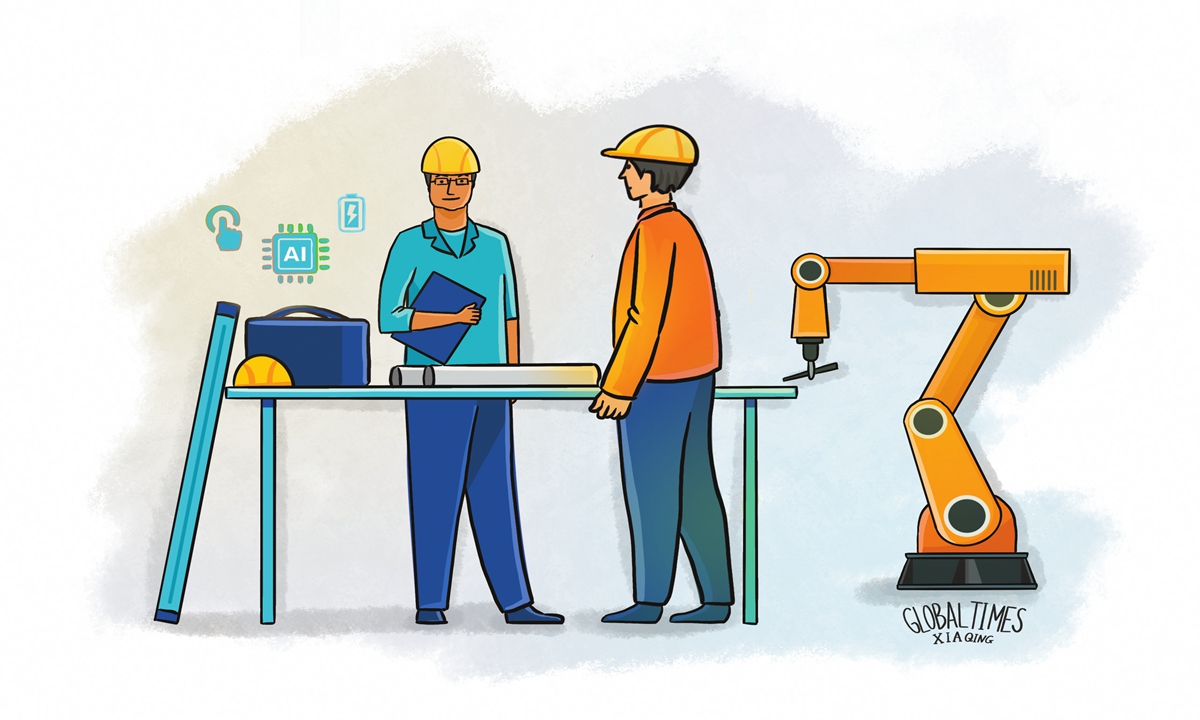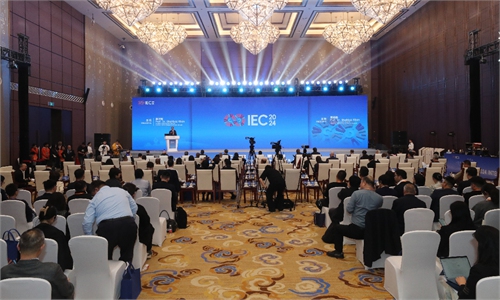How does China’s ‘engineer dividend’ propel rapid growth of its high-tech industries?

Illustration: Xia Qing/GT
China's "engineer dividend" is yielding rewards. Will the country affect the tech industry in the same way that it influenced the clothing and houseware sectors? This query was raised in a recent Bloomberg article. As China progresses in artificial intelligence (AI), humanoid robots and similar fields, the spotlight has turned to the underlying factors contributing to this surge, with some calling it China's "engineer dividend."Why has China been able to create an "engineer dividend," and is this unique to China?
China has a large population base. As of 2024, the working-age population in China, defined as those aged 16 to 59, was 857.98 million. Data from 2022 indicate that China had established the world's largest higher education system, with 240 million people having received higher education.
Due to differences in statistical methodologies, it's challenging to estimate the exact number of engineers in China. However, various data sources indicate that China has developed a vast community of engineers. This represents a unique advantage in supporting the rapid growth of high-tech industries, an achievement that many other countries find difficult to replicate. The Survey and Research Center for China Household Finance, Southwestern University of Finance and Economics estimated that as of 2020, there were about 19.05 million scientists and engineers in China.
"50 percent of the world's AI researchers are from China," said Nvidia CEO Jensen Huang, Nikkei Asia reported on March 20. "So it stands to reason that there will be a great contribution of AI research coming from China."
Does a large number of engineers necessarily result in an "engineer dividend"?
The engineering workforce in China exhibits several characteristics that enable the transformation of its talent pool into an economic dividend. First, compared with developed countries, China maintains a relatively lower wage level, enhancing the cost efficiency and accessibility of its "engineer dividend." Second, the relatively young demographic within China's science and technology human resources strengthens the sustainability of the "engineer dividend." According to Bloomberg, citing data compiled by Kaiyuan Securities, those under the age of 30 account for 44 percent of the total engineering pool, versus 20 percent in the US.
What processes have been involved in converting the "engineer dividend" into the rapid development of China's high-tech industries?
Driving technological advancement requires a cadre of engineers who are energetic, persistent, imaginative and willing to take risks. Unleashing the potential of "engineer dividend" is a complex issue that involves efforts across multiple fronts. Innovation is never easy; it is only through robust competition and a well-structured reward system that talented individuals can be encouraged to continuously experiment, challenge themselves and strive for improvement.
China's "engineer dividend" supports the rapid development of the high-tech industry. China's efforts to facilitate the cultivation of new quality productive forces and the construction of a modern industrial system have also played a crucial role in fully unleashing the potential of the "engineer dividend." These efforts provide a vast developmental space for China's high-quality talent.
What will China's "engineer dividend" bring to the global economy?
If people in other countries view China's technological growth from a zero-sum perspective, then China's talent advantage is seen as competition. However, if they adopt an open and rational attitude, then China's "engineer dividend" can become an economic boon for the world.
In China, traditional labor-intensive industries are upgrading to development that is driven by capital and technology, with an expanding group of engineers playing a vital role in advanced manufacturing companies. When BYD began developing electric vehicles more than a decade ago, it had already gathered more than 10,000 engineers. As of 2024, BYD had more than 100,000 engineers, Securities Times reported on Wednesday, citing Chairman and President of BYD Wang Chuanfu. China's "engineer dividend" will, along with outward investments and international collaboration, extend to other countries and regions around the world, positively contributing to global economic development.
Certainly, China still faces some challenges in cultivating innovative talent and needs to deepen reforms to break through the bottlenecks that constrain the advantages of its talent pool. With continued efforts, it is believed that China's "engineer dividend" will further expand, bringing more benefits to the global economy.
The author is a reporter with the Global Times. bizopinion@globaltimes.com.cn



